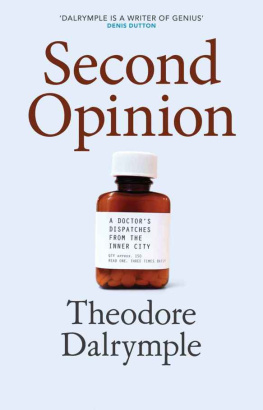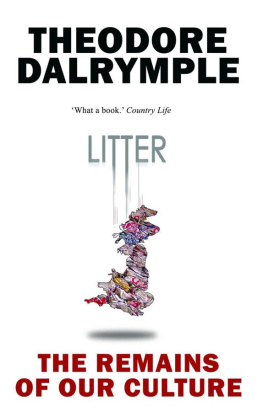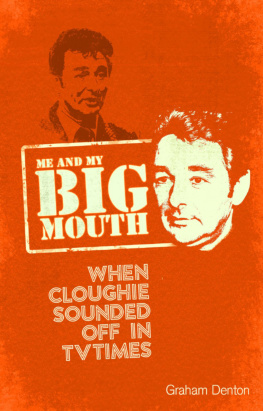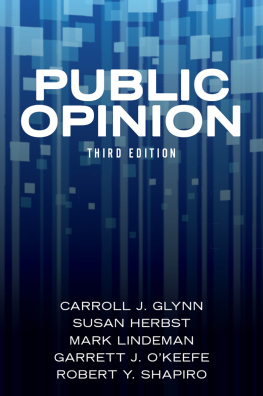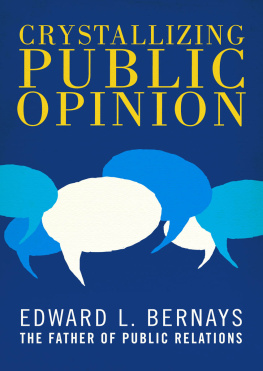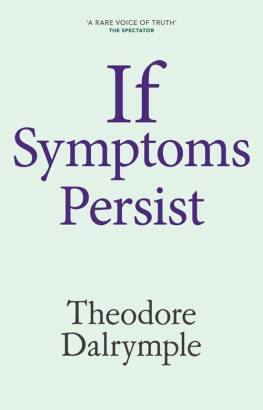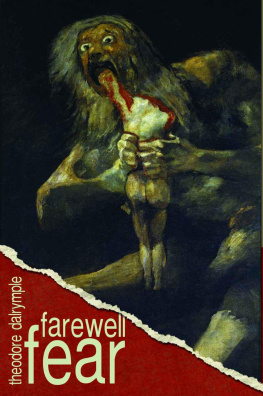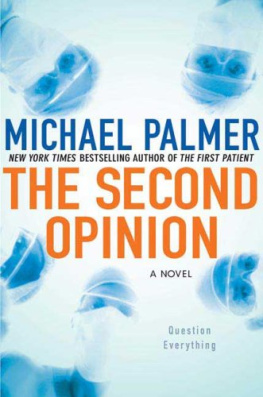Theodore Dalrymple is a doctor and consultant psychiatrist. These brief pieces concern his experiences during many years spent working in a British inner city hospital and at a nearby prison.
MY VIEW OF OUR EARTHLY EXISTENCE IS NOT ALTOGETHER SUNNY
I SEEM TO have an adverse effect on my patients. Far from making them feel better, I make them feel worse.
For example, only the other morning I saw one of my patients walking down the street arm-in-arm with a friend, enjoying a jolly good joke. Alas, this happy situation was not brought about by any treatment of mine, quite the reverse. She has only to appear in my consulting room to be at once crippled by pain and crushed by depression so deep that she is almost speechless with misery.
It is true that my view of our earthly existence is not altogether a sunny one, but surely I do not communicate my darker thoughts so unequivocally by my very manner of being that people who encounter me are at once thrust into the abyss of despair, not to mention neuralgia and a host of other symptoms? Could there be, perhaps, another explanation of the contrast between my patients happiness on the street and her misery in my consulting room? Reader, there could. My patient used to be a nurse who worked on a geriatric ward, but one day slipped on the hospital corridor which was being mopped by a cleaner without any notice to the effect that wet stone floors are slippery. One mans negligence is another mans opportunity, of course. The prospect of early retirement on full pay with a nice lump sum into the bargain danced before my patients eye even before she hit the ground. No more medicine time, no more tea for fractious geriatrics to drink up for their own good; henceforth her time would be her own. Only one problem remained: to convince enough doctors that her injury was severe and permanent. In this context, permanent means when doctors have grown sick of trying to cure their patient. Theyll say and sign anything then, just to get rid of him or her.
On the day on which I saw her tripping merrily down the street, my first in-patient was a young man who had taken a few too many aspirins. He was chatting happily to another patient, but when he saw me his face clouded over: the mere sight of me had pitched him into the Slough of Despond. His mood became ever blacker as he approached my room. He was wearing a T-shirt with the following legend:
No scares. No worries. No regrets. No fear. NO SHIT!
On one forearm was tattooed the letters ACAB, on the other NWA: All Coppers Are Bastards and Niggaz With Attitude. On his neck the word Jade was tattooed.
Why Jade? I asked.
Shes one of my daughters.
How many do you have?
Three.
One mother?
Three. I dont get on with none of them.
He was now 22.
Why did you take too many pills? I asked.
I aint got nowhere to live.
We could find you a hostel.
I dont want to go to no hostel.
We wont be able to find you anywhere else.
Well, Ill have to go on taking overdoses then, wont I?
He left my room with a face of thunder. A few minutes later I saw him laughing and joking with another patient.
HE TOOK THE PRECAUTION OF STABBING HIM
FROM TIME TO time, our ward looks more like a police lock-up than a haven of healing. By every bed there are two policemen preventing the escape of the patient, and usually watching television at the same time. Sometimes they and their captives chat amicably; at other times there is a sullen silence between them.
Last week we had one of the jollier type of suspects in our ward. He was what is known in the trade as a body packer: a man (or woman) who transports heroin or cocaine by swallowing packets and recovering them from the other end of his digestive tract a few days later, in the privacy of a lavatory. This is the modern equivalent, I suppose, of the transport of nitroglycerine in The Wages of Fear : for one burst packet of cocaine means certain death. I am not sure whether the jolly body packer was unaware of the danger he was in, or merely set a low value on his own life.
The police, of course, were interested in his faeces. The law states, however, that an Englishmans poo is his property, and to search it without the owners consent requires a search warrant. I had mistakenly supposed that, once shed, it was in the public domain. One learns these arcane things through experience.
I spoke in private to the body packer (of Jamaican descent, as most of them are) about his life. He prefaced his remarks by admitting that he was no angel, in case I was under any misapprehension on that score. If I had been, his gold front tooth alone would have disabused me. His body bore the scars of various fights: he had been cut many times, though he had no bullet wounds as yet, and therefore wasnt a real man. I asked him whether he was violent.
No, he said. Im peaceful. But I dont like parties where theres a lot of bare niggers.
Bare niggers?
Niggers with attitude, bad boys. Then I can get aggressive, and things happen.
His latest knife-fight had been with an old adversary.
The boy was a typical boy who acts bad , who comes on bad.
Who is he?
His nicknames Snake.
Why?
Cause hes like a python, hes got a deadly sting.
Pythons are not poisonous, I said. Imprecision in such matters brings out the pedant in me.
Well, Snake is.
One day they had a minor contretemps in the street. Snake, who was with some friends, drew away and immediately started calling people on his mobile phone.
What was he saying?
He was getting people to come and get me kidnapped, or hole me up.
Hole you up?
Yes, shoot me, put holes in me.
Next time he saw Snake, he took the precaution of stabbing him a few times. Snake had asked for it: he had taunted him by saying, Come here, pussy, come here. Bring it on. So he did.
And now? Whats going to happen next?
Ive had these phone calls from friends of Snake.
What do they say?
We know where you live, youre fucked wherever you are, youre fucked if youre in prison and youre fucked if youre not.
No wonder he was so cheerful on the ward. Eat, drink and be merry, for tomorrow we die.
HE KNEW I KNEW HE KNEW I KNEW
EVERYONE KNOWS WHAT doctors do: they diagnose and treat illness. First, a patient comes to the doctor and complains of symptoms. Then the doctor examines him and perhaps performs some laboratory or other tests. Finally, having arrived at a diagnosis, the doctor applies the correct treatment, be it pharmacological or surgical. From the purely abstract point of view, it is all rather simple and straightforward.
In practice, however, complications sometimes arise. For example, last week there was a patient in my ward who told me that he had been off sick from work for the past year.

